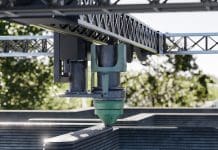Amey Consulting has designed the UK’s first carbon-neutral road improvement project – an £8m Highways England carriageway reconstruction in Cumbria
Working alongside several contractors, Amey Consulting designed and provided carbon consultancy services on the A590 dual carriageway resurfacing and reconstruction between M6 junction 36 and Brettargh Holt roundabout.
Amey Consulting’s carbon modelling experts worked with Highways England and contractors, including Aggregate Industries, A E Yates and HW Martin to measure the carbon benefits of the scheme.
The works resulted in significant carbon reduction across three main areas – materials reduction and reuse, energy reduction and transportation efficiencies.
In total, the project reduced carbon by up to 43% compared to traditional solutions and saved almost £3m.
‘A UK first for environmental engineering’
Steve Mason, Highways England’s senior project manager, said: “The safety of road users was our key concern in the planning of this project.
“The installation of an ex-situ recycling option and on-site asphalt plant gave us the opportunity to work 24/7 – removing the need for many thousands of deliveries but also allowing us to complete work near the motorway junction as quickly as possible and reduce any queuing associated with the roadworks.
“It was from this position that we tasked each contractor to help drive down the project’s carbon footprint.
“It was tremendous effort of collaboration between Highways England, Amey Consulting and our CWF partners, to add the efforts of AE Yates and Aggregate Industries are to be commended”.
Alex Gilbert, managing director, Amey Consulting, added: “We are very proud to have worked in collaboration with Highways England and fellow contractors on a UK first for environmental engineering and carbon reduction.
“Key to success was using our carbon modelling expertise to understand how we can influence traditional solutions to reduce carbon output and cost for our client.
“This is an exciting step for highways industry as we believe this process has the potential to be built upon and replicated right across the UK.”






![[VIDEO] GBC network calls for boldness at COP29 Baku, Azerbaijan, where COP29 will take place and where the GBC Network have deirected their message](https://www.pbctoday.co.uk/news/wp-content/uploads/2024/11/iStock-513054348-1-218x150.jpg)







![[VIDEO] World’s largest crane lifts final ring at Hinkley Point C Big Carl, the world's largest crane, lifting the final liner ring for Hinckley Point C](https://www.pbctoday.co.uk/news/wp-content/uploads/2024/10/94747-218x150.jpg)